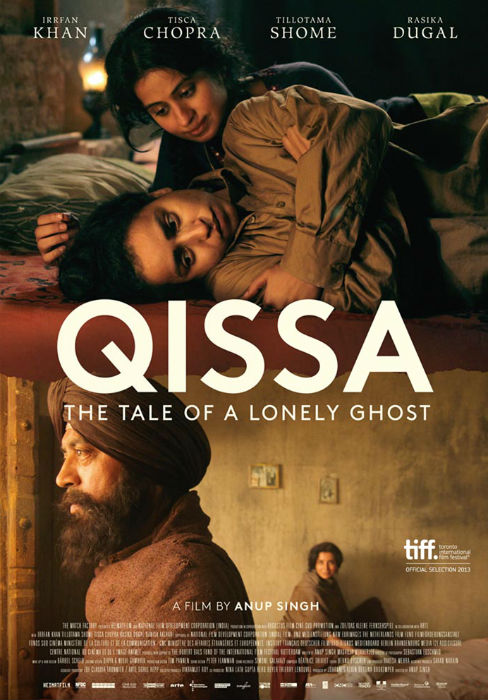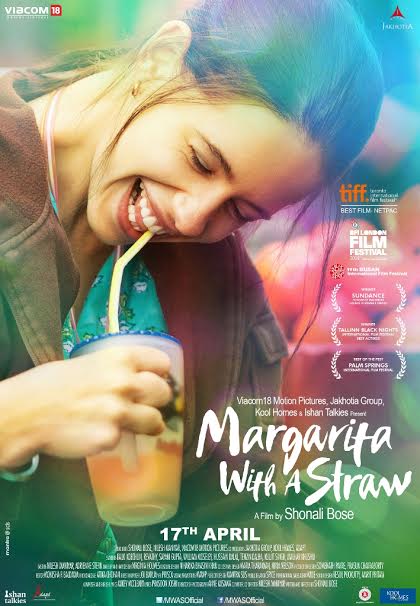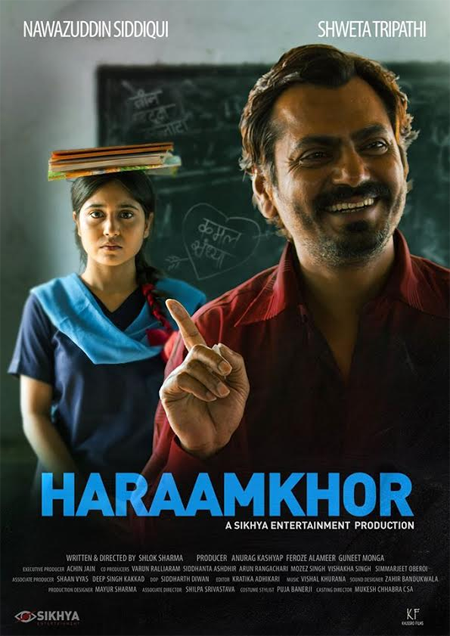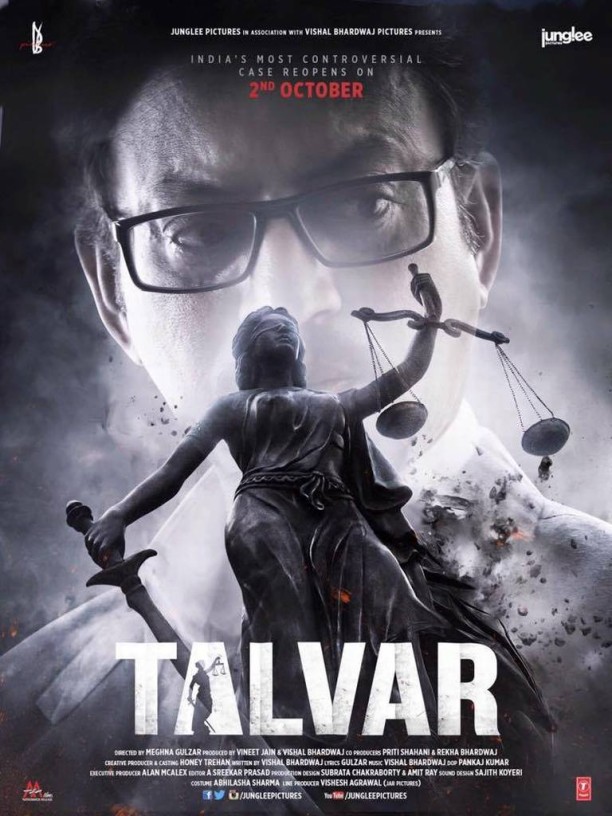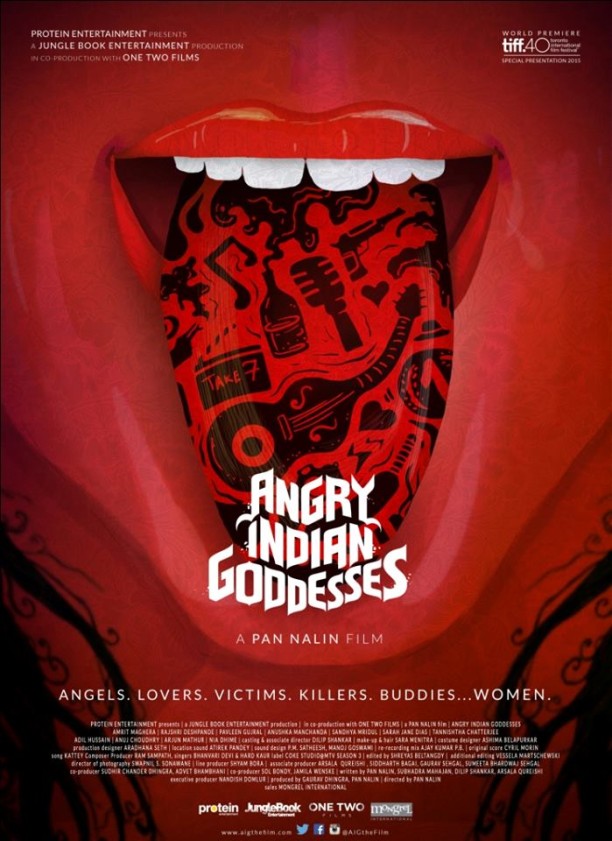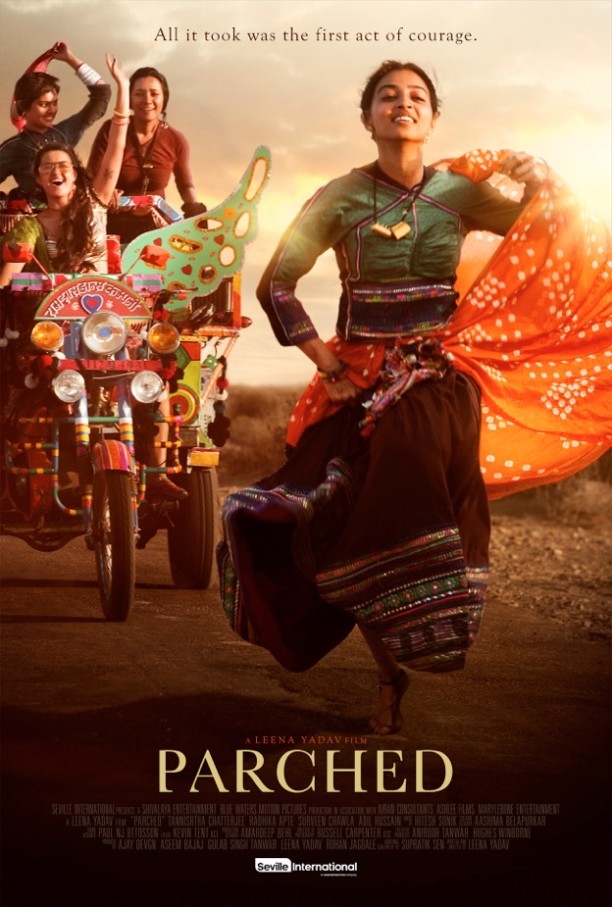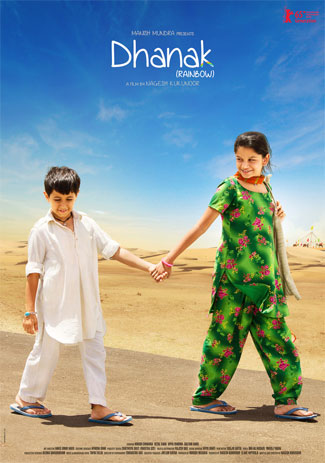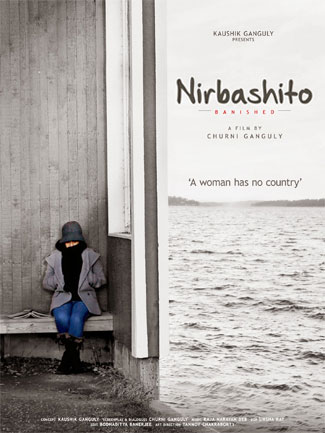By Katherine Matthews and Rumnique Nannar
One of the most frustrating aspects of covering festival and indie films has been the limited access for a wider audience – very often review comments run along the lines of: “Tell me where I can see this!” 2015 was a year that finally saw some great shifts in this, with a number of festival films finally getting a theatrical release – some of them films that had been on the festival circuit for a couple of years, some of them hot off the 2015 festival rounds. Audiences for both festival and indie films are small, but they’re growing, and access to this year’s “best of” selection should be easier for interested viewers. 2015 was, indeed, a great year for these films – enjoy our choices for Festival and Indie Bests!
Qissa
A TIFF2013 film that finally saw its theatrical release this past year, Qissa (“Folktale”), set in post-partition India, introduces us to Sikh patriarch Umber Singh (Irrfan Khan). Forced to leave his village (in Pakistan territory), Umber takes his family (consisting of his wife, two daughters, and a newborn baby girl whom he refuses to look at – “I’ve seen enough girls,” he tells his wife, Mehar) and sets out to rebuild his life. “The Partition scattered us like birds in a storm,” he says, and Qissa sets out to examine the effect of the loss of home, nation, identity; showing how, in Umber, it affects how he relates to his family. “Who am I?” asks Umber. “What am I? What curse have I brought down on myself?” Qissa is a fascinating film, setting itself up as a kind of folktale to explore this dark and troubling environment, and the effect of these events on the human psyche. It is a film that is sure to divide; but in doing so, it is also sure to foster debate about the issues at its very core, issues that more than sixty years after Partition still shape people’s identity and their view of their world. /KM
Margarita With a Straw
Another TIFF selelection (from 2014), Margarita With a Straw delighted audiences at film festivals worldwide before its 2015 theatrical release. The film has racked up a steady stream of awards in the last year, and Bollyspice reviewer Aashi Gahlot called it “Brave. Real. Beautiful.” The film, starring Kalki Koechlin as a young woman with cerebral palsy who moves to New York with her mother in order to study, and who begins to explore the nature of her own sexuality as well, is a powerful exploration of self-discovery, ability/disability, love, sex, and the nature of acceptance. /KM
Haraamkhor
In a village in Gujarat, a married schoolteacher, Shyam (Nawazuddin Siddiqui), begins a relationship with one of his teenaged students, Sandhya (Shweta Tripati). Director Shlok Sharma has worked as an assistant to both Vishal Bhardwaj and Anurag Kashyap, and the influence of both these directors can be seen in Haraamkhor, a film that made the festival rounds in 2015 and which will see its theatrical release in 2016. Small town life, gritty realism, a modern world that is encroaching at the edges and a dark sense of humour permeate the film. In Haraamkhor, Sharma asks us to consider boundaries – most obviously, moral boundaries and their transgression, but also where the boundaries between childhood and adulthood lie. Explosive emotions simmer under the surface, occasionally slipping as things become more desperate. With the gentle guidance of her father’s girlfriend, Neelu (who discovers the relationship, but doesn’t reveal it, preferring to treat Sandhya as an adult, and also protect her, probably aware that the consequences of having it revealed would be equally as devastating for Sandhya), Sandhya breaks free of this affair with a manipulative, selfish, immature man. /KM
Talwar
Meghna Gulzar’s film unfurls like a Rashomon procedural drama, as we’re taken through the multiple scenarios of the Aarushi Talwar case from the central investigator played by an understated Irrfan Khan, to the bungling cops, and the anguished parents who were eventually arrested. Much like the podcast Serial or Netflix’s series Making a Murderer, Talwar walks you through the ineptitude of the initial discrepancies which turns the audience into armchair detectives. The film has stunning performances by Neeraj Kabi and Konkona Sen Sharma as the parents who have little time to mourn their daughter before they accused of murder. Khan really sells that incredulous anger in the final presentation of his evidence as he laughs at the second assessment that eventually convicted the couple. It’s a bruising indictment of a broken justice system that makes one of the best procedurals of Hindi cinema. /RN
Angry Indian Goddesses
This scrappy Indie gem won over the tough crowds at TIFF2015 with its Runner Up Prize in the Grolsch’s People’s Choice Awards. Pan Nalin packs every feminist into his narrative of seven women on a bachelorette trip in Goa, and it works because every actress makes her character a lived-in and authentic person we might recognize. Sure, the film feels like it’s juggling too many tones, but it’s a rare film that doesn’t condemn its female characters for being flawed, catty, and insecure. The actresses all have a moment to shine, but it was Sandhya Mridul’s working mother that your heart goes out for as she struggles with the dilemma of “having it all.” /RN
Parched
Another gem from TIFF2015, Leena Yadav makes sure that the feminist awakenings for its central trio of Lajjo, Rani, and Bijli (Radhika Apte, Tannishtha Chatterjee, and Surveen Chawla) is hard-won. Yadav shows us how these women both uphold and shatter the patriarchy in their journeys from Rani saving her young daughter-in-law to Bijli standing up to the men around from exploiting her. It’s a surprisingly sexy film that flips its female gaze onto Indie staple Adil Hussain as the sexy shaman who awakens Lajjo. It’s a film that more than passes any Bechdel or Mori test as these women discuss everything from their sexual encounters to their daily struggles, it’s so refreshing to hear dialogues that are attuned to the way women actually interact instead of an approximation. Here’s hoping the film finds a wider release in India next year. /RN
Dhanak
Honoured with a prize at the 65th Berlin International Film Festival, Dhanak is a film just filled with magic. Orphans Pari (Hetal Gada), 10, and her younger brother, Chotu (Krrish Chhabria), 8, live with their aunt and uncle. Chotu is blind, and Pari promises her brother that he will regain his eyesight in time for his ninth birthday, that they will see rainbows when he finally can see again. When she sees a poster of her idol, Shah Rukh Khan, encouraging people to donate their eyes, Pari decides to write to him, sure in the belief that he will help Chotu regain his sight. When she learns that SRK will be filming in Rajasthan, Pari decides to take Chotu to see him. Their journey is filled with wonder and danger, and even a few miracles. On their way, they meet strangers who help them, who watch out for them, and who save them, for not everyone they meet is looking out for their best interest. And almost everyone they meet has a story about Shah Rukh Khan – adding to the film’s charm and humour (and it has plenty of both). At the heart of it all is the delicate and beautiful relationship between the two siblings, their love for each other, and even their bickering over who is the better hero, Shahrukh Khan or Salman Khan. /KM
Festival Special Mention
Nirbashito
Churni Ganguly’s National Award winning Bengali film Nirbashito (The Banished) is both an unflinching and compassionate look at the idea of exile, through the story of a writer, a poet, whose work has so inflamed political sensibilities that she ends up banished from her homeland, forcibly torn from her home, moments after fussing over and feeding her beloved cat, Baaghini. Nowhere, it seems, is safe for this writer. Nowhere in India, at least, and perhaps nowhere in the world, as the tight security which her Swedish protectors provide for her once she arrives in Stockholm shows. The film is dedicated to legendary painter M.F. Husain, who died in a self-imposed exile. But it is, in equal measure, dedicated to Taslima Nasreen – and the film is a somewhat fictionalized examination of Nasreen’s own journey into exile. Despite the film’s serious subject matter, it ends on a note of hope and optimism. Nirbashito was awarded the National Award “for its poignant articulation of the suffocation one experiences when exiled in a land that is not one’s own.” We feel the writer’s sense of suffocation in a land that is not her own, but we also feel the writer’s determination to return home someday. /KM

